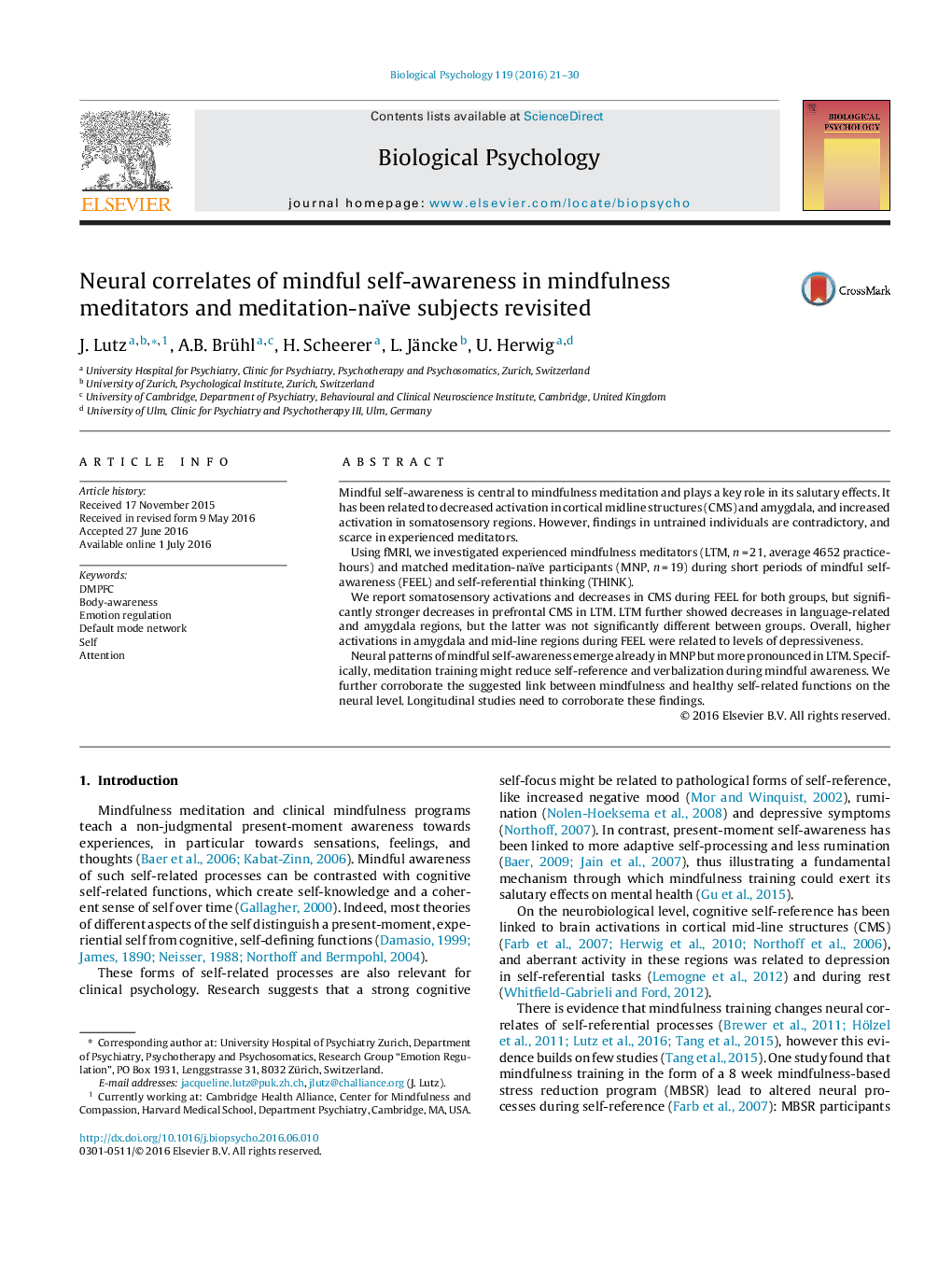| Article ID | Journal | Published Year | Pages | File Type |
|---|---|---|---|---|
| 920737 | Biological Psychology | 2016 | 10 Pages |
•Neural correlates of mindfulness were present already in meditation naïve subjects.•Overall, neural correlates were more pronounced in experienced meditators.•Hypothesized group differences in somatosensory areas were less apparent.•Experienced meditators relied less on verbalization during mindful self-awareness.•Amygdala/mid-line activations during mindfulness correlated with depressiveness.
Mindful self-awareness is central to mindfulness meditation and plays a key role in its salutary effects. It has been related to decreased activation in cortical midline structures (CMS) and amygdala, and increased activation in somatosensory regions. However, findings in untrained individuals are contradictory, and scarce in experienced meditators.Using fMRI, we investigated experienced mindfulness meditators (LTM, n = 21, average 4652 practice-hours) and matched meditation-naïve participants (MNP, n = 19) during short periods of mindful self-awareness (FEEL) and self-referential thinking (THINK).We report somatosensory activations and decreases in CMS during FEEL for both groups, but significantly stronger decreases in prefrontal CMS in LTM. LTM further showed decreases in language-related and amygdala regions, but the latter was not significantly different between groups. Overall, higher activations in amygdala and mid-line regions during FEEL were related to levels of depressiveness.Neural patterns of mindful self-awareness emerge already in MNP but more pronounced in LTM. Specifically, meditation training might reduce self-reference and verbalization during mindful awareness. We further corroborate the suggested link between mindfulness and healthy self-related functions on the neural level. Longitudinal studies need to corroborate these findings.
